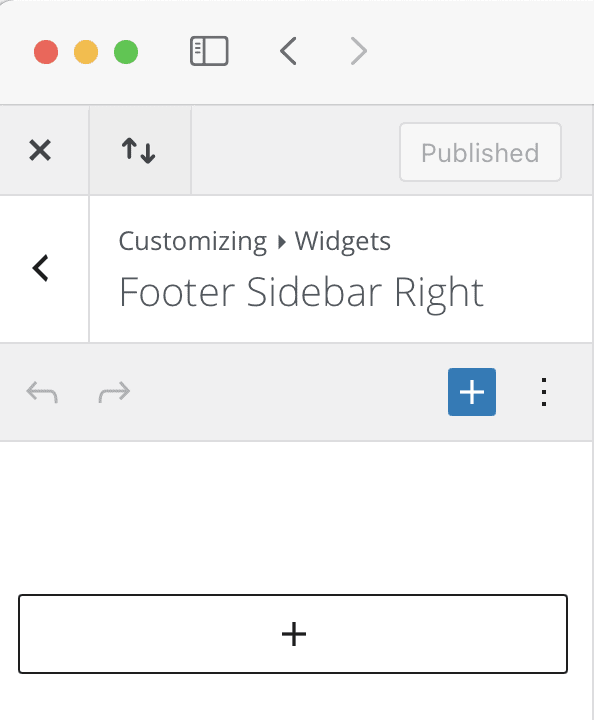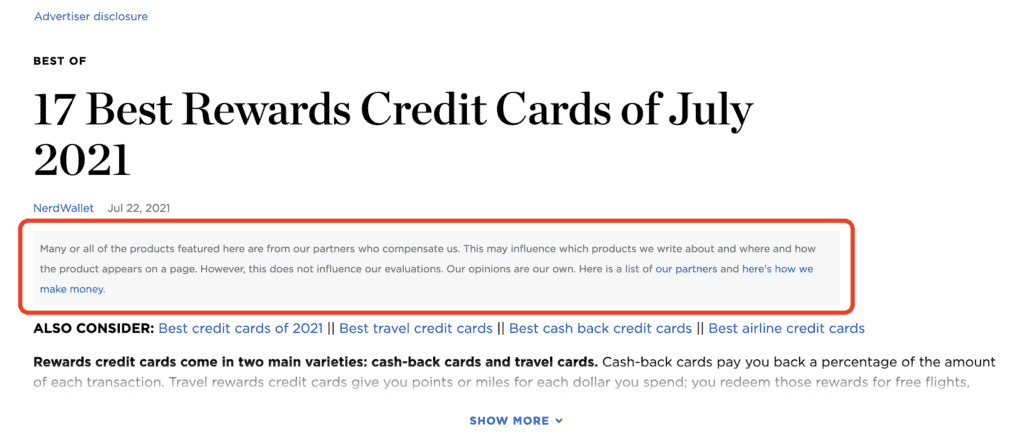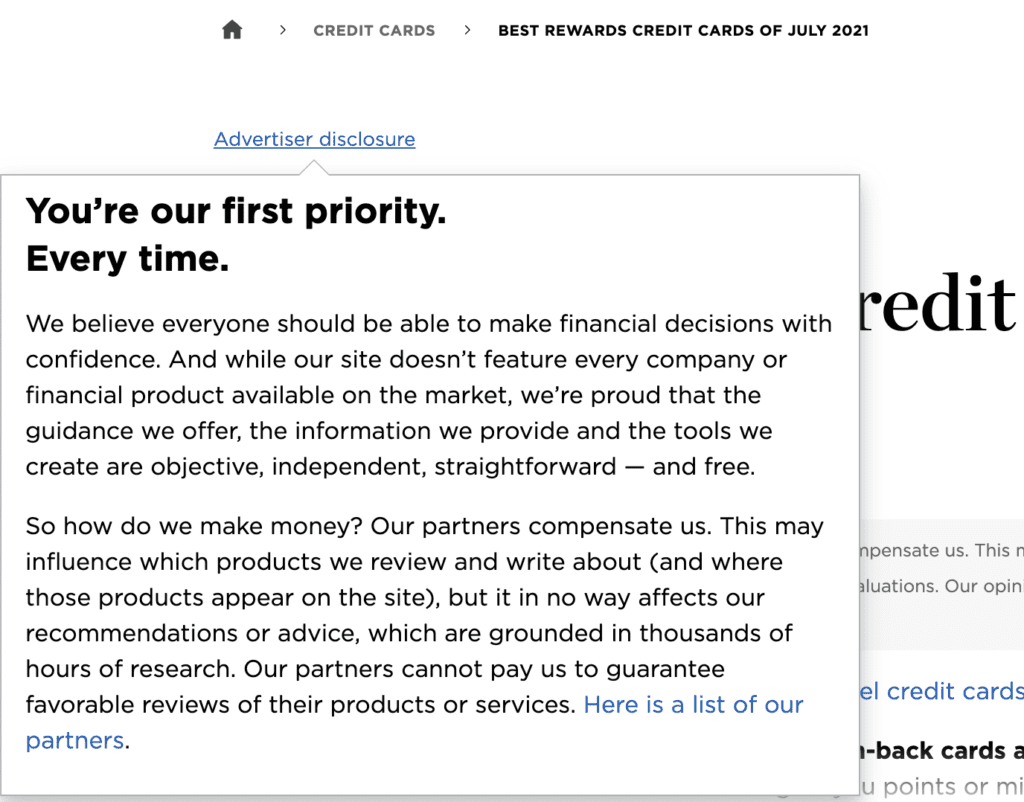Affiliate marketing is a great way to make money online, but it also comes with real responsibility. (For the record, this wasn’t a deliberate Spiderman reference, but I’ll leave it in.)
As you probably know, affiliate marketing is a business model where you make money by recommending products or services to your audience. When people click through to a sales page using your affiliate link and make a purchase, you get a commission!
Now, let’s cut to the chase: As an affiliate marketer, you will sometimes need an affiliate link disclosure in owned channels where you’re adding an affiliate link, such as:
- Affiliate websites
- Podcasts
- YouTube videos
- Social posts
- Emails
So, want to know how to do it right?
In this post, I cover everything you need to know about how affiliate disclosures!
What is an Affiliate Link Disclosure?
First of all, what is an affiliate link disclosure?
It’s simply a disclaimer informing your audience that you’re getting compensated from your endorsement of a product or brand (in cases where you’re offering an editorial opinion). The whole point of disclosure is to reveal your financial stake in a product you’re reviewing or endorsing.
This can be a spoken disclosure – like in the case of a YouTube video – or a small bit of text that you include on your website, YouTube video description, etc.
Here’s a simple example of an affiliate link disclosure:
Disclaimer: This page contains affiliate links. If you choose to make a purchase after clicking a link, I may receive a commission at no additional cost to you. Thank you for your support!
You may also choose to include a link to a full-page disclaimer on your affiliate website.
Why Does Affiliate Disclosure Matter?
So, why bother with this affiliate disclosure stuff, anyway?
I know compliance and legal aren’t the most exciting topics, but there are a few important reasons to take disclosure seriously:
- It builds trust with your audience. Being upfront about your financial relationship with other companies is the right thing to do! If you’re recommending a product or a brand without telling people that you’re being compensated (either with money or by receiving free products), then they’re missing key information that could influence their purchase decision. When you’re transparent, it ensures your audience can trust you.
- It’s the law. The Federal Trade Commission (FTC) is a US government body involved in consumer protection, and it has prohibited “unfair or deceptive acts or practices” in online advertising. That means you must disclose your affiliate relationships to consumers. If you don’t, you could be fined by the FTC. (And just to be clear, anyone can report you to the FTC, which means smaller affiliates are still at risk if they don’t have proper disclosure.) See the FTC’s .com disclosure guide to learn more.
- It’s required for many affiliate programs and ad platforms. Even if the FTC doesn’t get you, many major platforms like Facebook and Amazon will crawl your website or landing page and see if you’ve included the required language for compliance. If you don’t have it, you may experience account shutdowns or bans. Similarly, affiliate managers you’re working with may kick you out of their affiliate program – they don’t want to get fined by the FTC because their affiliates aren’t following the rules!
So, both from a moral and financial standpoint, it’s a no-brainer to include disclosures wherever they’re required.
But where are these disclosures required?
Let’s find out!
Where to Add Affiliate Disclosures
There are all kinds of places where you’ll need disclosures, but let’s make it simple.
The rule is, you must provide “clear and conspicuous disclosures” for any online advertising messages “that consumers are likely to believe reflects your opinion, belief, finding, or experience.” This applies to an opinion, review, or endorsement of ANY product or brand where you stand to make money – including not just with affiliate links, but sponsorships or official endorsements as well.
These same rules apply wherever you happen to be promoting a product online: Instagram, a podcast, a blog, a YouTube video… What matters is disclosing that you’re offering your opinion as an affiliate.
With that said, here are specific guidelines for each location online where you’ll commonly add an affiliate disclosure.
Blog
Many bloggers make money by adding affiliate links throughout a blog post, whether it’s an informational article, a product review, or a roundup style post. (Learn more about blogging as an affiliate in ClickBank’s building an affiliate website guide.)
The best way for bloggers to disclose their affiliate relationship is at the top of on any page where they promote affiliate products. Some will also add the disclaimer to a site element that shows up on every page, like the header, footer, or sidebar.
If your blog is in WordPress, it’s easy to add text to these with your theme’s Customizer, a plugin like Ad Inserter, or just a sidebar widget in the Appearance menu in the WordPress dashboard.

You can also save a custom block in the Gutenberg editor or in your own page builder and add it wherever it’s needed. Don’t forget that your affiliate disclosure should be responsive – don’t put it in a place that won’t appear on mobile devices or your job isn’t done yet!
YouTube
In your YouTube videos, it’s perfectly fine to create content with an opinion, but if you have a “material connection” with the product or brand you mention, then it’s important to include a disclosure.
Any disclosure should be hard to miss and as close to the actual endorsement as possible. For that reason, you should tell people that you’re an affiliate in the actual video – and also remind people in the description if you’ve put an affiliate link there.
And in the case of a live stream on YouTube where you’re promoting something, you should occasionally repeat the disclosure to make sure that anyone who tunes in has a good chance of hearing it.
Facebook and Instagram
For influencers who want to promote products as an affiliate, there’s good news: you can have affiliate links in Facebook posts on your personal page or business page! You can also include them in posts within Facebook Groups that allow promotion – the only place you absolutely CANNOT have affiliate links is in your paid Facebook ads.
As for Instagram, you obviously can’t have a link in your post, but affiliate links are allowed in your bio, in Stories, and anywhere else you can post a link. Just be sure you’re following all of the rules your affiliate program or network has in place for affiliates.
To disclose that you’re posting an affiliate link on Facebook or Instagram, one common method is to use a hashtag like #ad, #sponsored, or #promotion in your post itself or in the post caption. Just make sure this hashtag is set apart from other hashtags so your audience can easily find it.
If you’re entering into formal sponsorship relationships, you may also be able to establish a Paid Partnership or add a Branded Content tag to your social posts. Depending on the situation, some marketers will also add a disclosure to their about page/bio. Learn more in the FTC guide to disclosures for social media influencers.
A Few Affiliate Disclosure Examples
NerdWallet Blog
When it comes to affiliate sites, the poster child may well be NerdWallet. This is a massive financial affiliate site that offers money advice – and also recommends financial products like banks and credit cards.
They make much of their money through affiliate marketing. If we hop into their review of the 17 best rewards credit cards, you’ll notice that a disclaimer appears right at the top.

They also have an advertiser disclosure pop-up appear when you hover over the “Advertiser disclosure” link, where they go into a little more detail about how they make money and how readers can find out who their affiliate partners are.

Cristiano Ronaldo’s Facebook Page
Next up, let’s talk influencers. Most ClickBank affiliates aren’t world-famous athletes or celebrities, but that doesn’t mean you can’t do affiliate marketing on your social accounts. There’s big money to be made in sponsorships and brand partnerships.

Here’s an example of a social post from soccer star Cristiano Ronaldo representing an influencer business partnership on Facebook.
Note the Paid Partnership badge in the corner. Facebook as a platform requires you to disclose the Page name of your business partner if you have a formal sponsorship or brand partnership.
But even if you’re just adding an affiliate tracking link to your own personal Facebook post, you can see how important disclosure is at every level.
Here’s How to Write Your Affiliate Link Disclosure
So, now that you understand the rules and you’ve seen some examples, it’s time to write your own affiliate link disclosure.
Here are a few suggestions:
- Make it clear. Don’t try to hide the fact that you’re making money – that defeats the purpose of the disclaimer. Be upfront and use words in plain English, which means avoiding jargon like “affiliate” or “pay-per-click” that the general public may not understand. Instead, use words like “paid,” “compensation,” or “commission.”
- Make it quick. Just a 2-3 sentence blurb should be enough on your website, and for short social posts, even a hashtag or two will suffice.
- Make it easy to find. Once you’ve written the disclosure, make sure to put it as close to the affiliate link as you can.
These are some general guidelines, but figuring out exactly what to say will depend on your niche, your brand, and your audience. And it might take a little research on your part to get it right.
According to Lyz Nesvold, the Director of Risk & Fraud at ClickBank:
“It’s always best practice to read through the FTC’s guidelines, to find the best information on what you can or cannot say in your advertising.”
She also pointed out the importance of “truth in advertising,” which is a related compliance issue. Not only is it risky to overpromise what a product that you’re promoting can deliver, but it may also jeopardize your business!
After all, if you start seeing a lot of refunds and chargebacks from customers you’ve brought to a seller on ClickBank, this will hurt your relationship with them – and if you’re making money via RevShare, you can lose your commissions and the money you spent marketing to those buyers in the first place.
This is yet another reason to be transparent and honest in all of your interactions with customers online.
Affiliate Disclosure Frequently Asked Questions
Are you required to disclose affiliate links if you’re outside the US?
It’s true that many affiliate marketers live or operate in other countries, so the question is, do the FTC rules apply to them?
Well, the bottom line is yes. If you’re doing business with US customers or engaging in business with affiliate programs and networks based in the US, then the same regulations apply to you. The official FTC language says, “US law applies if it’s reasonably foreseeable that the post will affect US consumers.”
You should also note that laws in the country you’re in may also apply. Countries like Canada and the UK have similar rules.
Do you have to disclose affiliate links in email marketing?
Affiliate email marketing is a special case, because you have to contend with both the email service provider (ESP) rules and whether your affiliate program or network allows you to promote products over email (for example, Amazon Associates does not allow Amazon affiliate links in email marketing).
Many email service providers (ESPs) don’t like affiliate marketing, because if you’re sending traffic via affiliate link to a denylisted URL through them, it damages their deliverability and overall reputation with internet service providers In most cases, affiliate links are permitted in email, but you may choose to treat it the way you do paid ads: link to an intermediate page like a content piece or a landing page that has the affiliate link and include the disclosure there.
However, ultimately, all of the same guidelines still apply. Be sure it’s clear to your audience, one way or another, that you’re acting as an affiliate with any product you’re promoting in your emails.
Can you post affiliate links on Facebook?
Yes, you’re permitted to post affiliate links on personal Facebook posts, Business Page posts, and Facebook Group posts (unless this is against a Group’s rules). The only place where affiliate links aren’t allowed is Facebook Ads – which is why most affiliates on Facebook Ads will send traffic to an affiliate bridge page.
How do you disclose affiliate links on Medium?
Another common place where content creators may add affiliate links is in their articles on the blogging site Medium. Medium does allow affiliate links, but the site is still a huge stickler about disclosing it if you’re acting as an affiliate.
According to Medium Policy: “You must disclose somewhere in the post that it includes affiliate links. If you have received payment, goods or services, or something else of value in exchange for writing a post, you must still disclose this fact in writing within your post (as per FTC Rules and Guides).”
Affiliate Link Disclosures Wrap-up
To summarize our affiliate disclosure guide, here’s the bottom line:
If you’re reviewing or endorsing a product or brand that’s compensating you in an owned marketing channel online – then you need to disclose this fact to your audience.
If it’s obvious that something is an ad, then no disclosure is necessary – but in the event of a gray area where it’s not 100% clear whether you need a disclosure, err on the side of caution. Ultimately, it’s YOUR job as an affiliate to follow the rules on disclosure to stay on the right side of the law, protect your reputation, and build a business you can be proud of!
For more information on affiliate marketing, visit the Spark by ClickBank education platform and fast-track your affiliate journey today!






